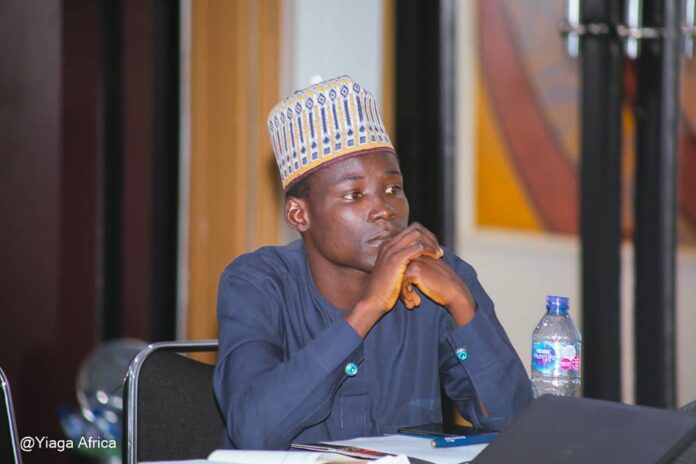
By Abdussamad Ahmad YusufThere were stalemates, for those who study history during all the Sharia debates in Nigeria, with the latest, in 1999 (others are in 1979 constitution reform and 1987 Shari’a implementation committee) when agile State Governors, such as of Zamfara and Kano promised, campaigned with, and fulfilled the reintroduction of the Shari’a in their respective states. Nigeria by 1999 democractic forth republic, operates a federal system, a secular constitution, a Christian President, Olusegun Obasanjo, Muslim Vice president, Atiku Abubakar, and a federal character system that says; opportunities should be distributed in equal and equitable propotion.
Just for a lesson; since the 15th century, states such as Kano – then a seperate and independent kingdom, under the reforms of a visiting North African scholar Muhammad Abdulkarim al-Maghili, has adopted Islam as a state religion stamped by its sovereign; Muhammadu Rumfa. For all these ages, Islam and the Shari’a have become part of the larger tradition of the state. This cut-accross most Hausa states; Katsina, Rano, Zazzau, etc. The later form part of the larger northern protectorate that became the modern Nigeria in 1914.
Fastforward to the 19th Century, another pre-Nigeria time chronicling the northern Nigeria’s familiarity with Shari’a morethan 200 year ago; Shaykh Usman bin Fodio, the architect of the defunct Sokoto sultanate; led an Islamic revival movement that culminated into establishment of an expanse Islamic polity covering the Central sudanic Africa.
Danfodio accused the former sovereigns of adulterating the Shari’a, so; a return to puritanical Shari’a, which has been a tradition in the land, 400 years before him, was received with zest. Life goes on!
Emirates that emerged from the movement — from Sokoto to Gwandu, Kano to Zazzau, Bauchi to Dass, Misau to Ilorin, etc., operate Shari’a.
Machineries of enforcement from the Emir himself as the Chief, to Chief Alƙali (Chief Judge), Wazir (Cheif religious advisor), Wali, Dogarai and local Alƙali courts under Emirs representatives, all were instituted and restrengthened.
In 1903 when the Sokoto Caliphate collapsed after reigning for a hundred year due to imperial occupation. The British retained the Emirs and introduced the indirect rule. The Alkali courts and all Shari’a machinery remained. This, after the whitemen understood: sharia is the best way to operate without clash between the people and the state. They understood further, the psychology of the citizen is conditioned to accept what is spritual than introducing what is temporamental. This can be seen in how people mobilised and resisted the imperialist despite superior weaponery and war strategy.
Until the 1970s, the post of Chief Alkali with the name of Regional Grand Khadi — Chief Sharia Judge — is in northern Nigeria. Individual states still have Grand Kḥadi dispensing and coordinating Shari’a.
These were complemented by Sharia complaint and enforcement agencies common among which are: State Shari’a commissions, Zakka and Hubsi Commissions and Hisbah Corps (Sharia Police). The names varied according to states.
With the speed at which average citizen gets frustrated with the Nigerian state in terms of governance and development, states like Kano, Katsina, Kaduna, Bauchi, Zamfara, Sokoto and Kebbi, tends to rely more on Shari’a than to take their cases to ‘secular’ agencies including secular courts and the Nigeria Police. These agencies explore alternative dispute resolution models and hasten the resolution than the ‘formal’ counterparts. Also, the pace of corruption in the Shari’a agencies is not as pronounced as in the secular one even as they lack accountability mechanism. This gives them popular credence that politicians banks on the Sharia to recruite fanbase. We have seen how in Zamfara, Governor Ahmed Sani (Yariman Bakura) at one time declared: for anyone contesting in the state for any political post, he has to make sure he has grown his beard – banking on what the Shari’a enjoins Muslim adult.
Sharia is a codified set of rules drawn from Qur’an — Muslim sacred book, Hadith (prophetic traditions) and the Ijma’a (consus of Ulama). It is applicable to muslims in personal, transactional and formal life. There are debates as to the geo-demography of applying Sharia’ debated even by our Shaykh Usman bin Fodio in definining an Islamland: Dār-al Islam and Dār-al-kufr (the abode of Islam and abode of unbelief). However, the most recognised consensus is: Sharia applies to a muslim irrespective of the land – whether Islam or of unbelief – he find himself.
What is the fuss now about Shari’a, that, in 2024; twenty-four years after the controversial reintroduction in 1999, a Federal lawmaker, moved a constitutional alteration bill to expand legitimacy of applicability of Shari’a in Nigeria? I will come back to this!
Abdussamad is a local researcher, he wrote in from Abuja, Nigeria. He can be reached via Abdussamadahmad69@gmail.com





































